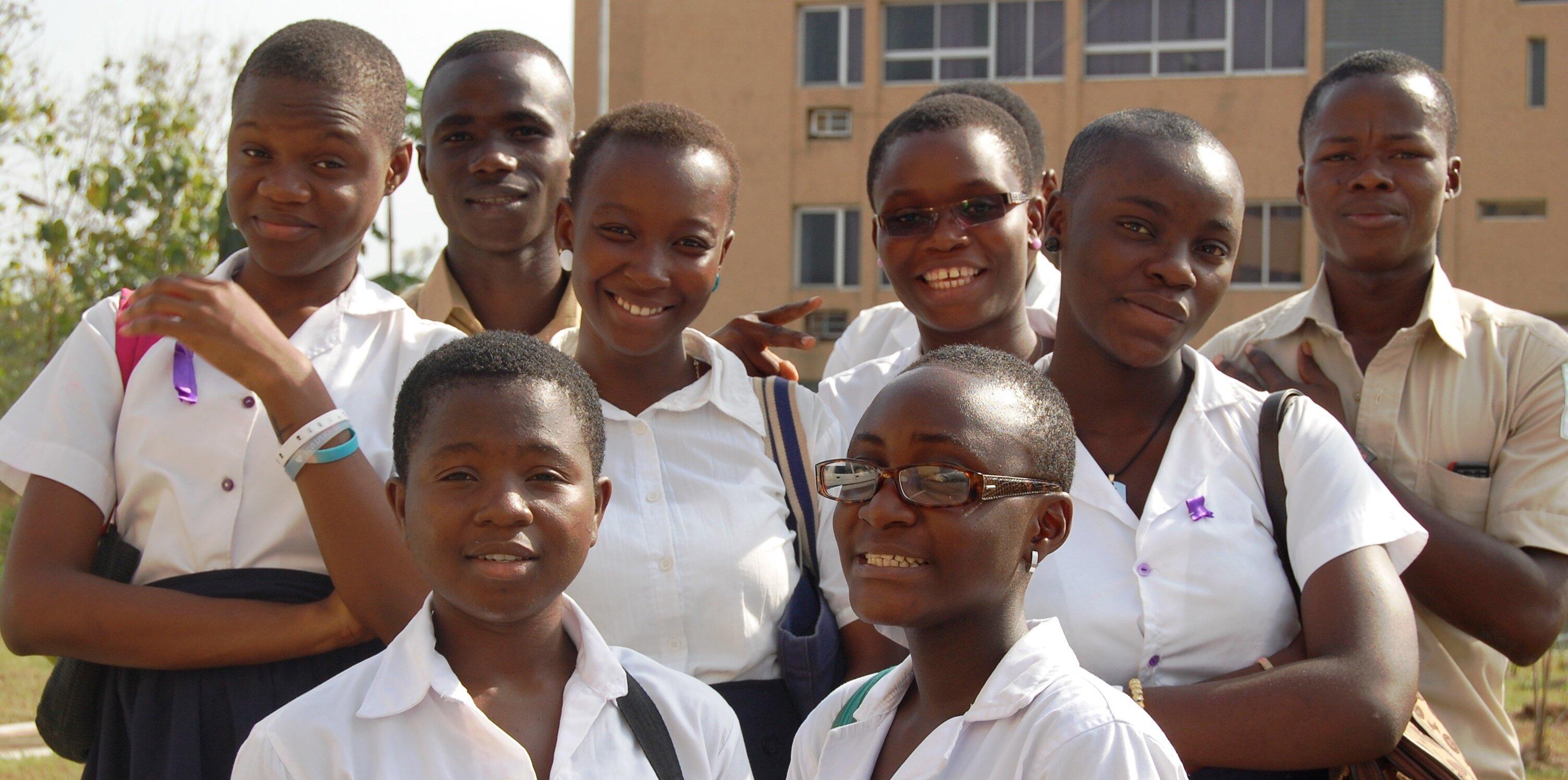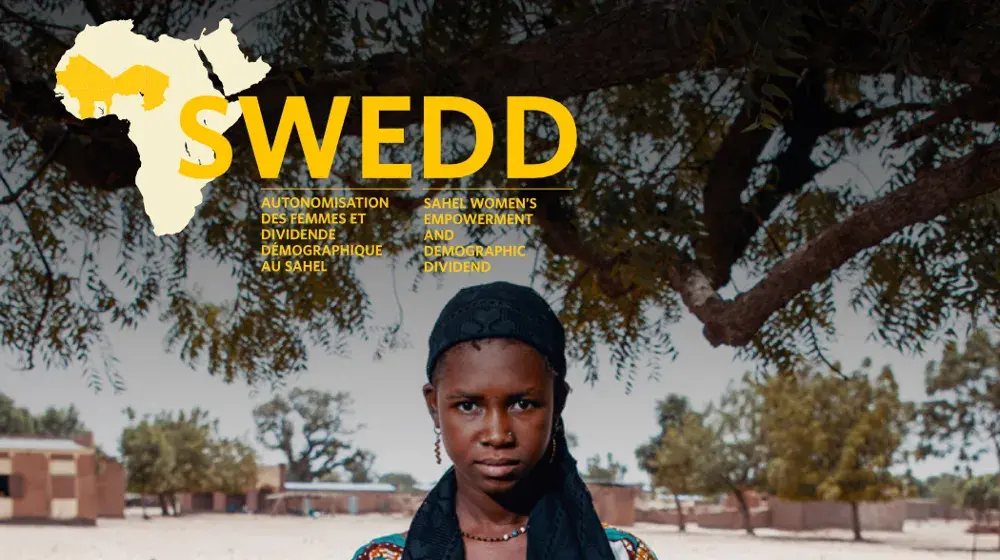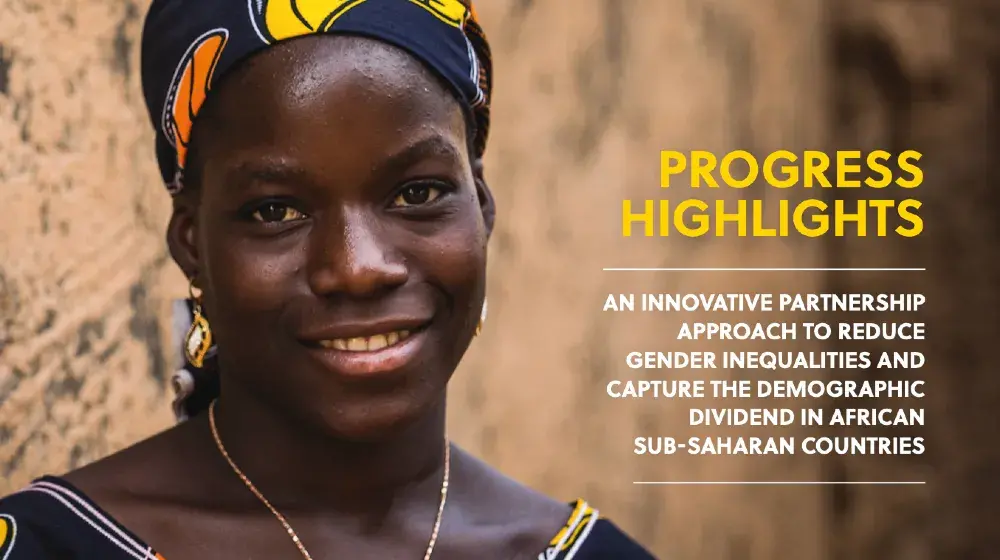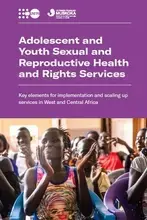Abidjan, Côte d'Ivoire – Faced with the alarming number of pregnancies recorded among students in primary and secondary schools, more than 5000 cases in 2013 alone, the Ivorian government launched a large-scale action to curb the phenomenon, with the support of UNFPA, the United Nations Fund for Population.
Laetitia B., 18 years old, a medium height and fair complexion girl, lives in Duékoué, a town 457km west of Abidjan, the Ivorian metropolis. In January 2013, she interrupted her education in 8th grade, following an unwanted pregnancy with her boyfriend Jean Luc, a 21 year-old who has no fixed job.
This was not Laetitia’s first pregnancy. She first got pregnant at the age of 15; she was still in primary school in Grade 5. Without informing her parents, she underwent an illegal abortion. On her second pregnancy, she lived with her father in Duékoué, a schoolteacher.
"When my father found out I was pregnant again, he was furious. I fled to Abidjan where my mother had moved after she separated from my father, "she says.
|
Once in Abidjan, Laetitia faced the anger and rejection of her mother who received her only after the mediation of her aunts and "mothers" in the neighbourhood. Finally, the support of her aunts and her mother contributed to her decision to give up the idea of another abortion.
"I dreamed of becoming a teacher. Unfortunately, I stopped my education because of pregnancy, "she said remorsefully.
Laetitia is not an isolated case in Côte d'Ivoire, even less in the world. About 16 million girls aged 15 to 19 years give birth each year worldwide, according to the 2013 UNFPA State of World Population report.
In Côte d'Ivoire, sexual life begins early as the median age of first sexual intercourse is 17 years for girls. The adolescent fertility rate is 111 per thousand. About two in five women had their first child before the age of 18. Moreover, only a third of girls aged 11 to 15 who become pregnant continue their studies after childbirth (IPS, 2010).
A survey by the Ivorian Ministry of National and Technical Education reveals 5076 students got pregnant in primary and secondary schools in the 2012-2013 academic year against 1,292 in 2007-2008, i.e. an annual increase of 41 % on average.
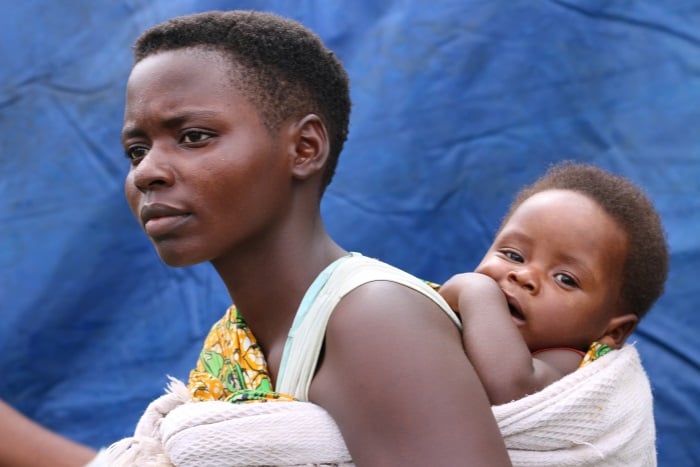
Decision makers and influential people in the country have also expressed concerned about the stern situation, as evidenced by First Lady Mrs. Dominique Ouattara’s comments at a public high school in May 2013: "The high rate of teenage pregnancies in our schools is a threat to the future of women in our country and we must act now. All at our respective levels: students; parents; teachers should be actively involved and expose sexual abuses in schools. It is by speaking out that we can eradicate it."
According to Mr Saidou Kaboré, UNFPA Assistant Representative in Côte d'Ivoire, the causes of such a blow are many: "... early sexuality among nearly 5 million adolescents and young students, precariousness related to adolescents and youths’ living conditions who are often far from the family circle and beyond any parental control, weak dispensation of sexuality education in schools, lack of communication between parents and children about sexual health and reproduction, extent of early marriages, and lack of reproductive health services for adolescents and youth."
Accelerated plan to reduce pregnancies in schools
Faced with these alarming and steadily rising figures, UNFPA is committed to support Côte d'Ivoire in its fight to reverse this trend. In this context, an Accelerated pregnancy reduction plan in schools 2013-2015 was designed in September 2013 with technical support from UNFPA and the participation of the Ministry of Health and the civil society.
This plan includes the creation of a pregnancy and sexually transmitted infections control club in each school, sexual and reproductive health service delivery, and stronger disciplinary and criminal sanctions against perpetrators of these pregnancies.
The six strategies of the Accelerated plan to reduce pregnancies in schools 2013-2015
|
The plan includes among its strategic actions a national "Zero pregnancy in school" campaign which was launched on 28th February 2014 by the Minister of National and Technical Education, Ms Kandia Camara, in Bondoukou (North-East), one of the most affected areas.
"It is a major obstacle to girls' education that must absolutely be tackled," said the minister. Reading the "Call of Bondoukou," she stressed the need to sanction the perpetrators of pregnancy in schools.
During a meeting with the community, religious and traditional leaders, Ms. Camara advocated communication between parents and children, "otherwise, the television or the internet will do it for us."
She also announced the opening from 2014-2015 school year of a girls’ boarding high school, a request made by the Bondoukou’s traditional chiefs, headed by the King of the Abron people, Nanan Adjoumane.
"It is the absence of appropriate structures for mentoring young girls such as boarding schools and shelters for girls that explain these pregnancies. Once she reaches high school level, the girl has to live away from her parents. And there she is abandoned to herself," said the spokesman of the King.
The King has also pledged to fight early marriages and pregnancies across all 1103 villages in the region with the support of village leaders and the prefect of the region.
For its part, the pastor Adou Kouakou, president of the group of Bondoukou pastors, advocated for sexuality education at school, strengthening spiritual guidance and measures in the protection of the girl child against the "predatory males".
This situation also concerns students
In the midst of the crowd that came for the launch of the campaign, a group of students are discussing the topic: "Here in Bondoukou, parents are to blame for the high number of pregnancies," a girl says. "It's true, they do not care for their daughters," another one agrees. And the boy in the group added: “Girls have to fend for themselves without parental support. Consequently, they become easy preys”.
The parade of students from several schools in the region, including Muslim religious schools, helped convey messages written on banners such as "Zero pregnancy in school, I endorse it"; "I am a child. A child doesn’t bear a child. A child goes to school to succeed. I abstain"; "You don’t get a child pregnant.”
Delivery of reproductive health service
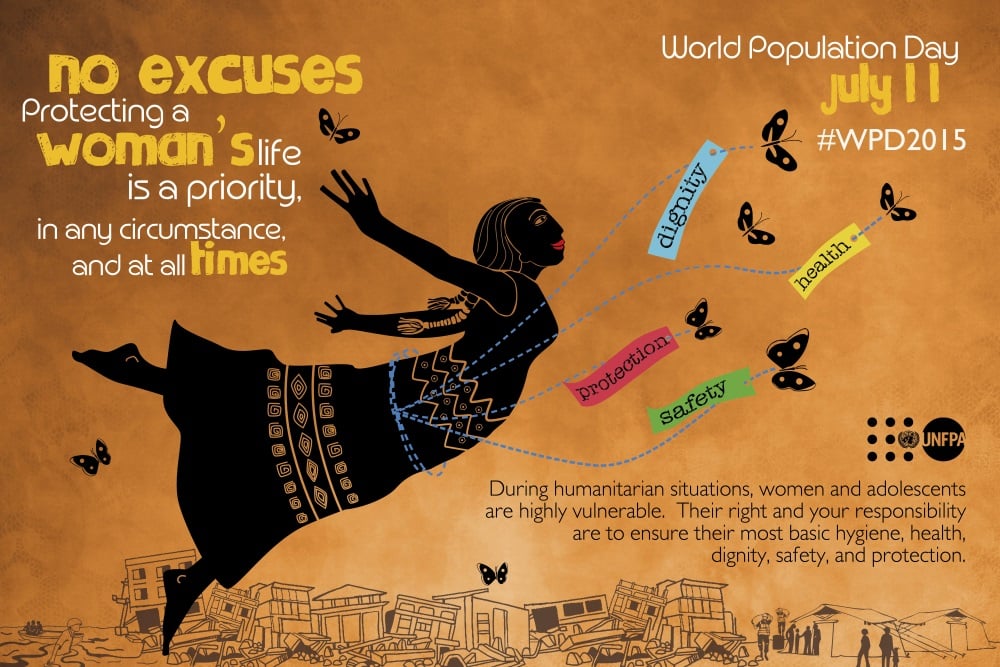
Moreover, two booths receive women for cervical cancer screening by an agent of the Ivorian Association for Family Welfare. Further down, rooms were arranged for the distribution of contraceptives, implants, IUD, injectable, pill, etc.
The Government strongly supports the reduction of pregnancies at school and aims to achieve the demographic dividend in Côte d'Ivoire
On 2nd April 2014, the Council of Ministers formally adopted the Accelerated School Pregnancies’ Reduction Plan 2013-2015 and affirmed its commitment to fight the vulnerability of girls in school and offer the same success opportunities for all children attending schools.
UNFPA in Côte d'Ivoire intends not only to fulfil its mission of creating a world where every pregnancy is wanted and to ensure that the potential of every young person is fulfilled but also support the government in its efforts to harness the demographic dividend. The government’s commitment was recently reaffirmed by the Ivorian Planning and Development Minister, Dr. Albert Mabri Toikeusse, who said "the realization of the demographic dividend must be supported in African countries in order to gain a larger active population."
The demographic dividend is the accelerated economic growth that can occur when the structure of the population in a country evolves when population growth moves from high to a low rate. This involves decline in fertility, access to family planning and improving the health and education of children. Thus, at a given time, young dependents are fewer compared to the population of working age. This creates an opportunity for more rapid economic growth provided that appropriate social and economic policies and investments, including in health, education and right vocational training for young generations are implemented. This transformation of the demographic structure is a window of opportunity because it provides countries with opportunities to encourage participation in the labour force, income, savings, investments and social change.
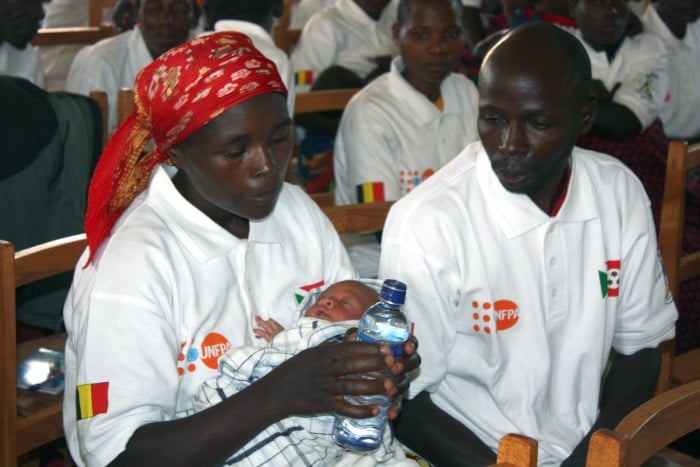
UNFPA helps governments understand how family planning, child survival and girls' education contribute to the reduction of fertility, the transformation of the age pyramid and the opening of the window of opportunity for economic growth.
We must remember that young people aged 15 to 24 years represent 19 per cent of the estimated 23.8 million Ivorian population in 2013; those under 15 years represent 43% of the total population. According to the official investigation "Situation de l’emploi en Côte d'Ivoire" conducted in 2012, the labour force in Côte d'Ivoire is estimated at 10.7 million people, the 14-35 year-old youth unemployment rate is 12.2 % and 21.7 % of youths aged between 14 and 35 years are "neither employed nor in school nor trained".
Teenage pregnancy is not only a health issue; it is also a development issue. It is one of the main reasons why girls drop out of school early, which at the same time destroys their chances of access to socio- economic opportunities and helps perpetuate the cycle of poverty.
“If Africa is to take advantage of its demographic transition, as others regions have, we must invest in our daughters and in ensuring that each young person has access to functional literacy and quality health care, including sexual and reproductive health services and comprehensive sexuality education. We must reform our economic policies to create opportunities for innovation, entrepreneurship and decent employment for young,” said UNFPA Executive Director Dr. Babatunde Osotimehin, in his opening statement at the African regional Conference on Population and Development in Addis Ababa, Ethiopia in October 2013.
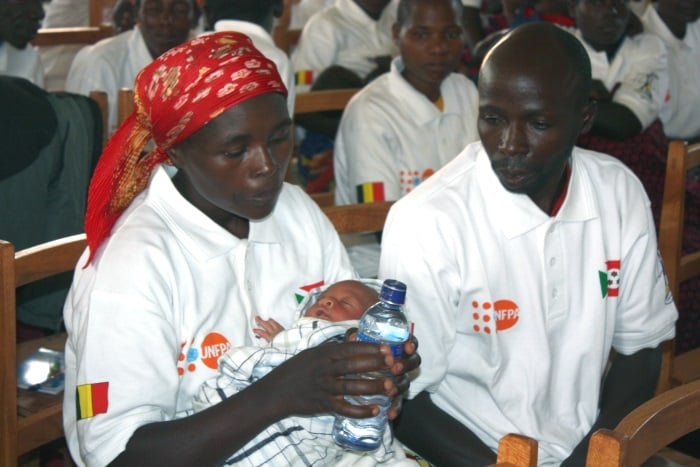
---------
INS, projections de la population du RGPH de 1998
Géopolitique de la Côte d'Ivoire , 2011
Situation de l’emploi en Côte d’Ivoire en 2012 par l'Agence d’Etudes et de Promotion de l’Emploi, Côte d'Ivoire, juillet 2013
Opening Statement by Dr Babatunde Osotimehin at the Regional African Conference on population and development in Addis Ababa, Ethiopia, October 2013

